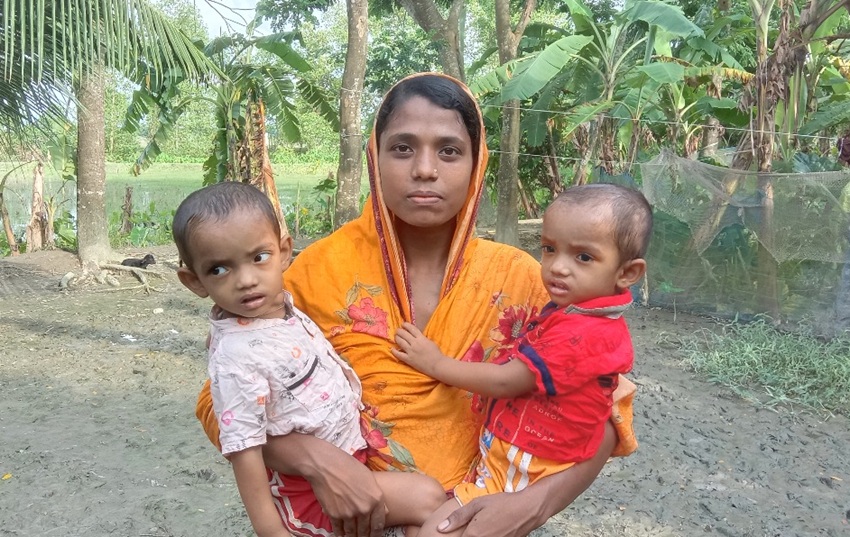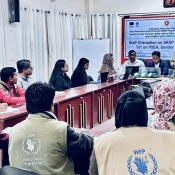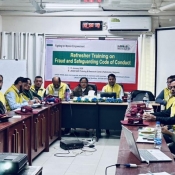Small Steps, Strong Roots: Halima’s Story of Resilience

Halima, a 22-year-old mother from Purbo Kawkhali village in Chotobaishdia Union of Rangabali, lives in constant struggle with her husband Ibrahim, their three children, and her mother-in-law. Poverty has always defined their lives, but the weight on Halima’s shoulders is heavier than most. Her eldest daughter, Eva, is five years old and hearing-impaired. She only communicates with Halima, which makes her mother both her bridge to the world and her constant caregiver. The twin boys, Hasan and Husain, are only 28 months old and need constant attention. Ibrahim does not provide steady support, his irregular work and gambling habits worsen the family’s vulnerability, leaving Halima to manage the household with occasional help from her in-laws, neighbors, and relatives.
When Cyclone Remal struck Rangabali, their fragile thatched home was swept away. Rising tidal waters forced the family to climb into a boat that carried them to a nearby shelter. There they found no food, no supplies, and no official help, only relatives to rely on. Returning to their broken home meant living on the edge of danger once again. To reach it, they must cross a shaky two-plank bridge over a canal, a terrifying passage for Halima with three small children in tow. With no hygienic latrine, open defecation is the norm, causing frequent illness. Food insecurity continues to gnaw at the family, many days Halima goes without meals so her children can eat.
Yet even within these harsh conditions, a shift began when Halima was introduced to the Early Childhood Development (ECD) program. Each week, she now receives simple but powerful guidance through IVR calls and messages, practical ideas on feeding, hygiene, and playful routines that cost little but mean much. An ECD facilitator also visits her home, offering not only demonstrations of play-based activities but also psychological first aid (PFA), helping Halima feel less overwhelmed and more capable. For the first time, she realized that nurturing her children’s growth did not always depend on money or materials, it could begin with her own voice, her time, and everyday household items.
Halima began to transform her caregiving practices. Mealtimes, once hurried and stressful, became calmer and more responsive. She now talks to the twins while feeding them, makes eye contact, and allows them to eat at their own pace. Using cups, cloths, and sticks as toys, she engages them in stacking, naming, and simple play that strengthens their attention and motor skills. Most importantly, she has learned to include Eva in these activities, using gestures, visual cues, and her presence, so that Eva is not left behind in moments of learning and bonding. These small changes have begun to lay the foundation for healthier development for all three children, even while food and resources remain scarce.

“I have faced dangers and hunger at every turn,” Halima shares. “But these weekly messages and visits show me small, doable ways to help my babies grow. I feel less alone and more capable as their mother.” Her words reflect the quiet strength of a mother who has turned knowledge into resilience, even when everything else seems uncertain.
Halima’s journey is not without challenges. She still dreams of a safer bridge to her home, a hygienic latrine for her children, and a community learning center where Eva and others like her can grow and access education. But her story already carries a powerful message: that even in cyclone-prone Rangabali, where families are displaced year after year, remote ECD support combined with compassionate home guidance can give mothers the tools to nurture their children’s growth against all odds.
Shahen Ahamed, JAGO NARI
Published on: Thursday, 4 September 2025, 02:43 pm ▪ Total View of this Page: 1639









